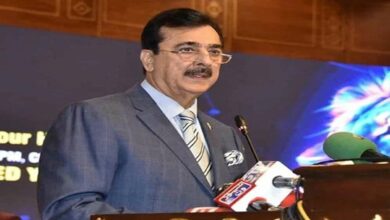Kazakhstan’s progress assessed and remaining challenges considered on Human Rights Day, celebrated on December 10
A scientific-practical conference held in Astana on December 10th, Human Rights Day, assessed Kazakhstan’s achievements in protecting human rights and discussed the obstacles still facing the country.

The conference, which was organized by Kazakhstan’s Office of the Commissioner for Human Rights in collaboration with the UNDP in Kazakhstan, the President of Kazakhstan’s Commission on Human Rights, the General Prosecutor’s Office, the Kazakh Ministry of Foreign Affairs, and the Ministry of Culture and Information, sought to increase the participation of both governmental and non-governmental organizations in human rights initiatives.
According to Artur Lastayev, Kazakhstan’s Human Rights Commissioner, the nation has strengthened democratic institutions and improved people’ legal standing in recent years.
“The Human Rights Committee, the Committee against Torture, the Committee on the Elimination of All Forms of Discrimination Against Women, the Rights of the Child, and the Rights of Persons with Disabilities are the six UN treaty organizations on human rights that Kazakhstan has acknowledged as having jurisdiction.
Every citizen of our nation may now immediately submit complaints for the preservation of their constitutional rights thanks to the constitutional court’s revival, which was a significant and important step in enhancing human rights during the last two years. A distinct item in the constitution was added, and our institution underwent significant strengthening and restructuring,” Lastayev said.
A number of legislation that protect basic rights have been passed in Kazakhstan in recent years.
“A legislation safeguarding women’s rights against domestic abuse was approved and implemented this year. It highlights the necessity for legislative solutions by criminalizing some practices that international organizations and civil society have long supported.
There have also been other actions. Last year, in particular, the punishment for torture was greatly increased to include up to 12 years in jail. The definition of the exclusive jurisdiction for their investigation unavoidably affected both the dramatic and directly proportionate decline in torture reports and the efficacy of investigations into such crimes,” Lastayev stated.
In the first 11 months of 2024, his office received over 6,000 appeals, a 15% increase over the same time the previous year.
Aleska Simkic, the European Union’s (EU) ambassador to Kazakhstan, emphasized that the EU and Kazakhstan collaborate closely on human rights protection.
“The bilateral expanded collaboration and cooperation agreement, the first of its type in Central Asia, binds us and Kazakhstan, our trustworthy partner, and governs 29 areas of our interaction. In this context, I’m pleased to report that we are also having productive discussions with Kazakhstan on human rights and the rule of law,” Simkic added.
The EU and Kazakhstan are working together to preserve human rights in a number of areas, including as freedom of association, freedom of the press, the rule of law, the prevention of gender-based violence, and the problem of torture.
Then, in the international arena, where we rely on allies that uphold the rule of law and human rights, we are working closely with Kazakhstan. “We find Kazakhstan’s position to be fairly strong when we discuss the United Nations Human Rights Council, the General Assembly of the United Nations, and the general respect for the United Nations Charter. That’s where we look for cooperation,” Simkic added.
The UNDP’s Resident Representative in Kazakhstan, Katarzyna Wawiernia, conveyed her gratitude for Kazakhstan’s cooperation.
“We at the UN Development Program are grateful that Kazakhstan has ratified the UN Human Rights Conventions since gaining its independence. We also value the vital work of human rights advocates who keep an eye on their application and sound the alarm if human rights are under danger. In her statement, Wawiernia expressed her satisfaction with the large number of human rights defenders in attendance today, indicating that communication between the government and the civil society sector is still going on.
“The UNDP has been assisting the government’s efforts to uphold the rule of law in Kazakhstan for more than 20 years. We have seen changes in the legal and law enforcement institutions, improvements to the Bar Association and National Human Rights organization, and more participation from civil society in assessing the efficiency of the court and law enforcement,” she said.
She claims that the UNDP is funding projects aimed at improving and bolstering the judicial system, police, and law enforcement’s institutional strength. The UNDP also seeks to institutionalize human rights policy in the commercial sector and widen the perspectives of the public, corporate, and civil society sectors on the subject of business and human rights.
“A special focus is made on environmental justice issues, where UNDP calls for the human rights-based approach in the work of police and judiciary to ensure citizens’ rights for a clean environment,” Wawiernia said.





